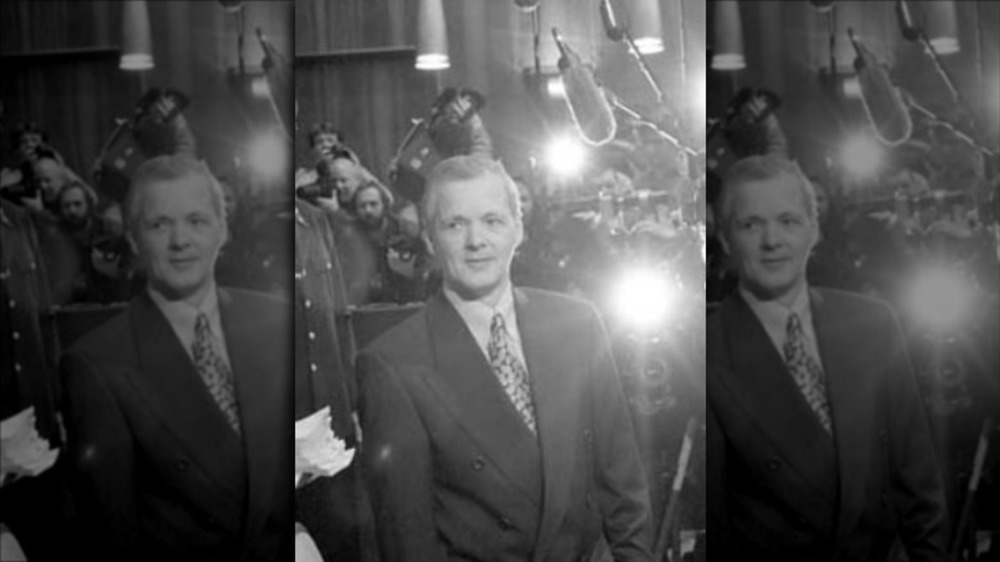The Messed Up Truth About Austrian Serial Killer Jack Unterweger
Jack Unterweger was born in Graz, Austria, to an unknown American soldier and an unstable mother, who spent much of her time in prison, according to Biography. With his father out of the picture and his mother absent for most of his childhood, he was largely raised by his alcoholic grandfather. Unterweger grew up in a deeply dysfunctional, unhappy home, and by his early teens, he had turned to crime as an outlet for his anger.
Unterweger harbored an intense hatred for prostitutes and had spent much of his teenage years in and out of jail, primarily for sexual assault. Between 1966 and 1975, he had already been convicted 16 times for his crimes against sex workers, according to crime writer Sue Coletta.
Seemingly inevitably, his violence escalated. It was in 1974 that Unterweger killed an 18-year-old woman named Margaret Schaefer, strangling her to death with her own undergarments, per Murderpedia. He was convicted of Schaefer's murder and sent to prison in 1976.
Unterweger's autobiography received critical acclaim
However, once behind bars, Jack Unterweger seemed to be dedicated to turning his life around. He was a model prisoner, devoting his attention to furthering his education by devouring books. He began writing his own short stories, poems, and plays, before publishing a best-selling autobiography, Fegefeuer oder die Reise ins Zuchthaus (Purgatory or the Trip to Jail – Report of a Guilty Man in English), in 1983. His work received critical acclaim within Austrian literary circles. The book also caught the eye of Austrian film director Willi Hengstler, who adapted the story into a 1988 feature film titled Purgatory, via IMDb.
Unterweger's mainstream success led to public lobbying for his release, which was ultimately successful. In 1990, he was deemed a rehabilitated man and released from prison. That turned out to be a grave mistake. Less than one year after he was released, Unterweger went on to murder eight more women while employed as a crime journalist. The job provided him the perfect cover, as he was able to explain away his suspicious whereabouts under the guise of research and even occasionally reported on his own crimes, per Sue Coletta.
Jack Unterweger's second trial
However, he didn't quite have everyone fooled. FBI Special Agent Greg McCrary, who was brought on to assist in the case, and a few other authorities remained suspicious, due to the similarity of the recent murders with the supposedly rehabilitated Unterweger's earlier criminal predilections. Austrian serial killer Jack Unterweger was finally apprehended again in Miami, Florida, on February 27, 1992, but only after murdering three American women while on assignment in Los Angeles, California.
Unterweger was ultimately charged with 11 counts of murder and placed on trial in his native Austria. He was found guilty on nine counts of murder, but he never served a single day of his sentence. On the night of his sentencing, June 19, 1994, authorities discovered Unterweger's body hanging from the roof of his jail cell. He had strangled himself using the drawstring of his own prison sweatpants. Because he died before he got the chance to appeal, the court's guilty verdict was rendered legally invalid. Unterweger is still officially an innocent man under Austrian law, per Murderpedia.


